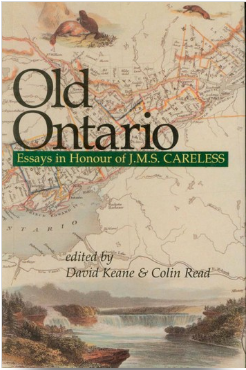In these matters, Edward Watkin, appointed by the Grand Trunk as its supervising manager in the summer of 1861, became Newcastle’s chief intermediary between the city of London and the Colonial Office. An indefatigable promoter and an experienced railway manager, Watkin believed that Intercolonial construction and westward expansion were absolutely necessary to resuscitate the Grand Trunk. In addition to lobbying in London to effect the ends shared by Newcastle and himself, Watkin also attempted to create a favourable structure in British North America. While this, the second component for the resolution of the Grand Trunk’s financial troubles, required intense arm-twisting in the Maritime provinces, Watkin’s main activity focused on Upper Canada. He initiated negotiations for the fusion of the Grand Trunk with the Great Western and the Buffalo and Lake Huron railways in order to cut competitive costs, rationalize administration and create a unified road to join with the projected Intercolonial in the east. After hiring the Great Western’s general manager and following tense discussions with the Great Western’s London board, he approached the John A. Macdonald-G.-E. Cartier government with an omnibus bill for the refinancing and reorganizing of Upper Canada’s railway system.
Imperial interests pressured the Macdonald-Cartier government throughout the spring 1862 parliamentary session. As Watkin informed Baring: “Keep poking every one up. It is absolutely necessary.” And so they did. Baring and Glyn wrote individual letters to Cartier and Galt urging them to see to the passage of the railway measure. Newcastle, through the governor general, Lord Monck, stressed the importance of lowering tariffs and passing a satisfactory militia bill if Canada desired any future substantial imperial aid. Imperial hopes rested on the effective co-operation of loyal colonial collaborators. “But, after all,” Watkin wrote, “all depends upon the Ministry. If they will stand true—really true—to what they have promised we shall, I hope, succeed. . . .”
The government did permit the Grand Trunk fusion bill to be introduced—albeit by a private member little schooled in the complexities of the issue—and narrowly missed being defeated on second reading. Galt did bring down a budget which promised some movement in the direction of lower customs and the introduction of an alternative revenue-raising method, the stamp tax. But the House never voted on it. Before it could, the government was defeated on its Militia Bill, introduced by the co-leader, John A. Macdonald, and defended by him despite his, according to Lord Monck, continual state of “drunkenness.”
The Macdonald-Cartier government fell in May 1862 for a number of reasons. From the perspective of this paper, however, the most fascinating factor concerns that government’s too close public relationship to certain imperial interests. Even the Bank of Upper Canada waged a strong campaign against the fusion bill because it provided imperial financiers with guarantees for Grand Trunk payments ranking ahead of those granted the beleaguered bank. As spokesmen and apologists for the Grand Trunk, and by extension for private British capitalists led by the government’s official London financial agents, Glyn and Baring, the Macdonald-Cartier ministry had in the eyes of many Canadian politicians and government critics lost all ability to act independently. “The unpopularity and prejudice [towards the Grand Trunk] I wrote to you about before, have in no way abated,” Rose privately informed Baring. “The old men [of the defeated government] were both powerless, and suspected by reason of their antecedents.”
--Peter Baskerville, "Imperial Agendas and 'Disloyal' Collaborators: Decolonization and the John Sandfield Macdonald Ministries, 1862-1864," in Old Ontario: Essays in Honour of J.M.S. Careless, ed. David Keane and Colin Read (Toronto: Dundurn Press, 1990), 240-241.

No comments:
Post a Comment